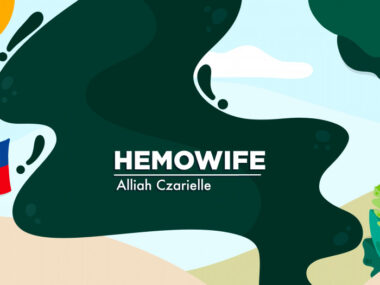Living with a disability doesn’t make someone ‘special’
What we miss when we view people with only pity or praise
Written by |

When people find out that my husband, Jared, has hemophilia and epilepsy, they often say things like, “You’re so strong,” or, “You’re such an inspiration.”
He usually smiles politely, then tells me later, “I’m not special. This is just my normal.”
That line has stayed with me. Because while those words — you’re special — are often meant as encouragement, they can quietly create expectations that weigh heavily on people with chronic illnesses or disabilities.
The ‘special’ trap
Calling someone “special” can seem positive on the surface. It acknowledges difference. It recognizes that life with a disability takes effort. But it can also distort how that person sees themselves.
When you’re told you’re special for simply existing with a condition, you may start to believe your value depends on appearing strong or exceptional. You might push yourself harder to prove that your life has meaning beyond your diagnosis. And when you inevitably feel tired or unmotivated — as all humans do — guilt sets in.
This can lead to what psychologists call overcompensation: trying to “make up” for a perceived flaw by excelling elsewhere. Some overachieve. Others mask their vulnerability behind control or bravado. The goal is the same: to avoid being seen as weak.
I once saw this pressure take a darker turn in our own community. Someone I used to admire ended up causing deep harm to another person — not because of his condition, but because of what he’d come to believe about himself. Years of being seen as fragile, then praised as “special,” seemed to twist into something else — a need to overcorrect and to adopt certain distorted ideas about masculinity to prove he wasn’t weak.
That experience forced me to think about how narratives of “specialness” can unintentionally isolate or distort people’s sense of self. When admiration replaces understanding, empathy gets lost. We start to see people through a single, polished lens — for what they appear to be, not for who they are. Their complexity gets flattened into a storyline that’s easier for others to digest. Their flaws, frustrations, and contradictions — all the things that make them real — get edited out.
And when that happens, connection becomes conditional. We stop relating to them as equals and begin relating to them as symbols — of courage, of struggle, of strength. The human being beneath those labels fades from view.
Grounded in reality
Jared takes a different view. For him, disability isn’t something to hide or glorify. It’s simply part of who he is.
He wakes up, takes his epilepsy medication twice a day, infuses factor, and gets on with life. Some days he’s in top form. Other days, he slows down. He accepts both without shame or bravado.
“Disability is your reality,” he says. “It’s not a tragedy, and it’s not a trophy. It’s just your normal.”
That philosophy has quietly reshaped how I see strength. It’s not about triumphing over your condition. It’s about living honestly with it — without needing to prove anything to anyone.
From pedestal to presence
Culturally, we tend to swing between pity and praise when it comes to disability. But both can miss the point.
People with chronic conditions don’t need to be pitied, nor do they need to be idealized. They need space to exist as full human beings — ordinary, complex, imperfect.
When we stop framing disability as “special,” we allow it to be part of the human spectrum instead of an exception to it. We replace pressure with presence.
So maybe the kindest thing we can tell someone with a disability isn’t “You’re so inspiring.”
Maybe it’s “You’re allowed to just be.”
Note: Hemophilia News Today is strictly a news and information website about the disease. It does not provide medical advice, diagnosis, or treatment. This content is not intended to be a substitute for professional medical advice, diagnosis, or treatment. Always seek the advice of your physician or another qualified health provider with any questions you may have regarding a medical condition. Never disregard professional medical advice or delay in seeking it because of something you have read on this website. The opinions expressed in this column are not those of Hemophilia News Today or its parent company, Bionews, and are intended to spark discussion about issues pertaining to hemophilia.



Leave a comment
Fill in the required fields to post. Your email address will not be published.